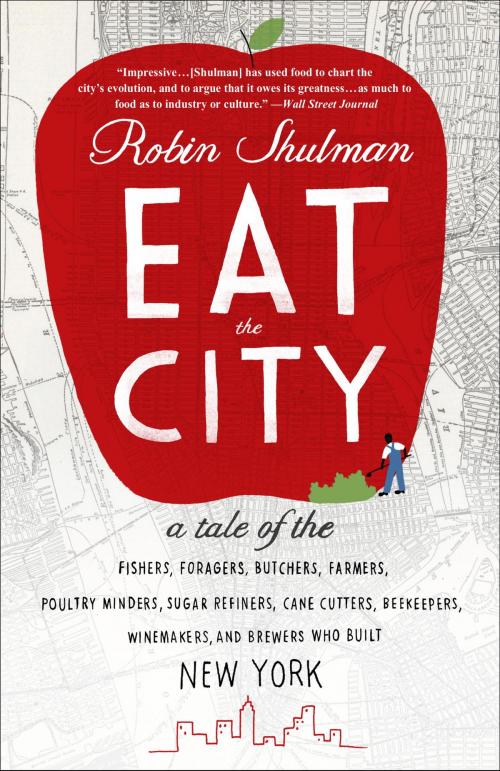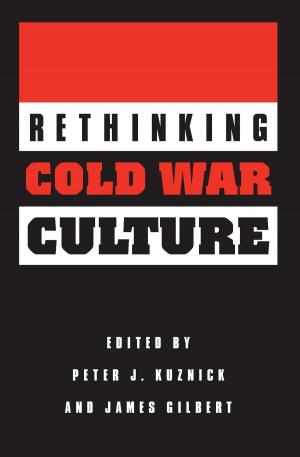Eat the City
A Tale of the Fishers, Foragers, Butchers, Farmers, Poultry Minders, Sugar Refiners, Cane Cutters, Beekeepers, Winemakers, and Brewers Who Built New York
Nonfiction, Food & Drink, Food Writing, History, Americas, United States, 20th Century| Author: | Robin Shulman | ISBN: | 9780307719072 |
| Publisher: | Crown/Archetype | Publication: | July 10, 2012 |
| Imprint: | Broadway Books | Language: | English |
| Author: | Robin Shulman |
| ISBN: | 9780307719072 |
| Publisher: | Crown/Archetype |
| Publication: | July 10, 2012 |
| Imprint: | Broadway Books |
| Language: | English |
New York is not a city for growing and manufacturing food. It’s a money and real estate city, with less naked earth and industry than high-rise glass and concrete. Yet in this intimate, visceral, and beautifully written book, Robin Shulman introduces the people of New York City - both past and present - who do grow vegetables, butcher meat, fish local waters, cut and refine sugar, keep bees for honey, brew beer, and make wine. In the most heavily built urban environment in the country, she shows an organic city full of intrepid and eccentric people who want to make things grow. What’s more, Shulman artfully places today’s urban food production in the context of hundreds of years of history, and traces how we got to where we are.
In these pages meet Willie Morgan, a Harlem man who first grew his own vegetables in a vacant lot as a front for his gambling racket. And David Selig, a beekeeper in the Red Hook section of Brooklyn who found his bees making a mysteriously red honey. Get to know Yolene Joseph, who fishes crabs out of the waters off Coney Island to make curried stews for her family. Meet the creators of the sickly sweet Manischewitz wine, whose brand grew out of Prohibition; and Jacob Ruppert, who owned a beer empire on the Upper East Side, as well as the New York Yankees.
Eat the City is about how the ability of cities to feed people has changed over time. Yet it is also, in a sense, the story of the things we long for in cities today: closer human connections, a tangible link to more basic processes, a way to shape more rounded lives, a sense of something pure.
Of course, hundreds of years ago, most food and drink consumed by New Yorkers was grown and produced within what are now the five boroughs. Yet people rarely realize that long after New York became a dense urban agglomeration, innovators, traditionalists, migrants and immigrants continued to insist on producing their own food. This book shows the perils and benefits—and the ironies and humor—when city people involve themselves in making what they eat.
Food, of course, is about hunger. We eat what we miss and what we want to become, the foods of our childhoods and the symbols of the lives we hope to lead. With wit and insight, Eat the City shows how in places like New York, people have always found ways to use their collective hunger to build their own kind of city.
ROBIN SHULMAN is a writer and reporter whose work has appeared in the New York Times, the Washington Post, the Los Angeles Times, Slate, the Guardian, and many other publications. She lives in New York City.
New York is not a city for growing and manufacturing food. It’s a money and real estate city, with less naked earth and industry than high-rise glass and concrete. Yet in this intimate, visceral, and beautifully written book, Robin Shulman introduces the people of New York City - both past and present - who do grow vegetables, butcher meat, fish local waters, cut and refine sugar, keep bees for honey, brew beer, and make wine. In the most heavily built urban environment in the country, she shows an organic city full of intrepid and eccentric people who want to make things grow. What’s more, Shulman artfully places today’s urban food production in the context of hundreds of years of history, and traces how we got to where we are.
In these pages meet Willie Morgan, a Harlem man who first grew his own vegetables in a vacant lot as a front for his gambling racket. And David Selig, a beekeeper in the Red Hook section of Brooklyn who found his bees making a mysteriously red honey. Get to know Yolene Joseph, who fishes crabs out of the waters off Coney Island to make curried stews for her family. Meet the creators of the sickly sweet Manischewitz wine, whose brand grew out of Prohibition; and Jacob Ruppert, who owned a beer empire on the Upper East Side, as well as the New York Yankees.
Eat the City is about how the ability of cities to feed people has changed over time. Yet it is also, in a sense, the story of the things we long for in cities today: closer human connections, a tangible link to more basic processes, a way to shape more rounded lives, a sense of something pure.
Of course, hundreds of years ago, most food and drink consumed by New Yorkers was grown and produced within what are now the five boroughs. Yet people rarely realize that long after New York became a dense urban agglomeration, innovators, traditionalists, migrants and immigrants continued to insist on producing their own food. This book shows the perils and benefits—and the ironies and humor—when city people involve themselves in making what they eat.
Food, of course, is about hunger. We eat what we miss and what we want to become, the foods of our childhoods and the symbols of the lives we hope to lead. With wit and insight, Eat the City shows how in places like New York, people have always found ways to use their collective hunger to build their own kind of city.
ROBIN SHULMAN is a writer and reporter whose work has appeared in the New York Times, the Washington Post, the Los Angeles Times, Slate, the Guardian, and many other publications. She lives in New York City.















